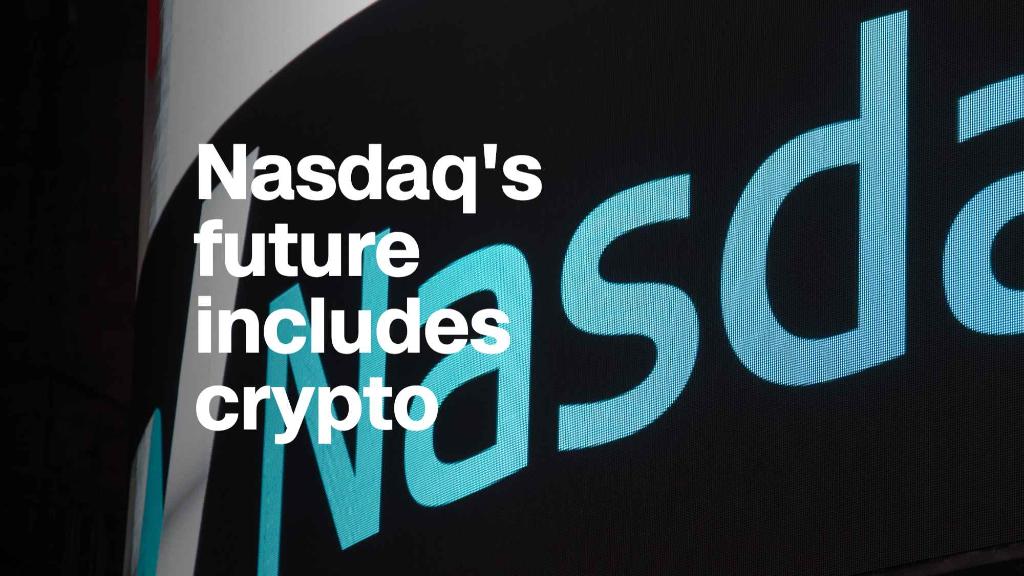
At Nasdaq, the future will likely include cryptocurrencies.
CEO Adena Friedman is optimistic that blockchain, the technology underpinning cryptocurrencies such as bitcoin, will play a key role in the economy.
"We see technology as a relentless change agent and our job is to embrace that change, to bring it to the industry, and make it so that our industry continues to be a very successful industry in the next decade or even beyond that," Friedman tells CNN's Poppy Harlow in the latest episode of Boss Files.
She is helping Nasdaq expand its offerings beyond the traditional stock exchange to an emerging platform that provides the infrastructure for other exchanges to participate in and monitor trading activity in the cryptocurrency market.
In April, Nasdaq inked a deal with cryptocurrency exchange Gemini Trust. Founded by early bitcoin investors, Tyler and Cameron Winklevoss, Gemini will use Nasdaq's technology to ensure trading activity is in compliance.
"There are a lot of exciting things in the machine intelligence space. There are a lot of exciting things in the trading space," says Friedman. "[Blockchain] takes a lot of risk out of the system and therefore it makes it so that the banks don't have to be as capital intensive. And that's a big incentive."
Friedman says cryptocurrencies feel like the "right next step in the space of currency." Yet, she says the "jury is still out" when it comes to which digital currency will persist.
"How it evolves and which of the cryptocurrencies may or may not be the one that ultimately gets embraced, I think that really the jury is still out on that. But I do think the idea of a more globalized payment mechanism that is more efficient than what we have today allows for money to transfer across countries and certainly supports the Internet economy," she says.
One potential roadblock: government regulation.

"Are the governments going to start to embrace it? Or are they still going to have it sit outside the realm of their oversight? That's the real question that's yet to be answered," Friedman tells Harlow. "I think the technology is fascinating and it's a very sound technology. It's just a matter of making sure that the community is all embracing it together."
As the regulatory environment continues to evolve, Nasdaq remains at the brink of it all.
"The first uses of the blockchain will be in the less regulated markets, less efficient markets, more bespoke markets. Test it out, show that it works, demonstrate the efficiency in the Nasdaq private market or in the fund industry," she says. "It takes a village to make it work, but people are going to be highly motivated if we show that the use cases bring a lot of efficiency."

